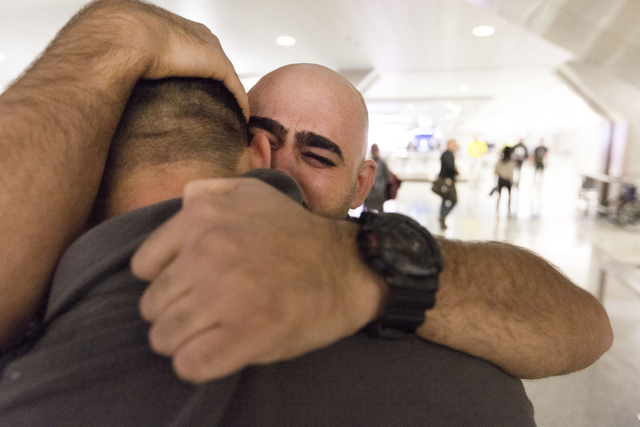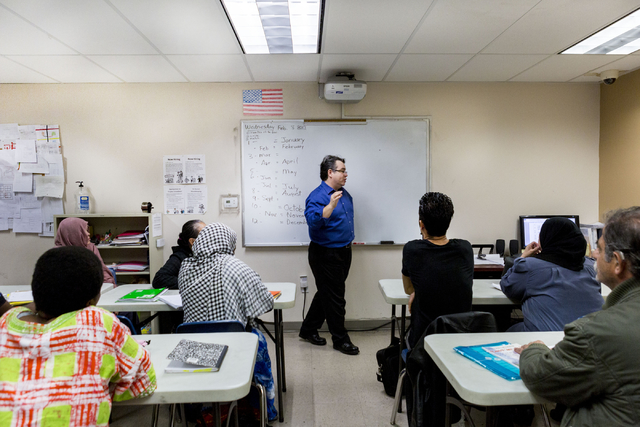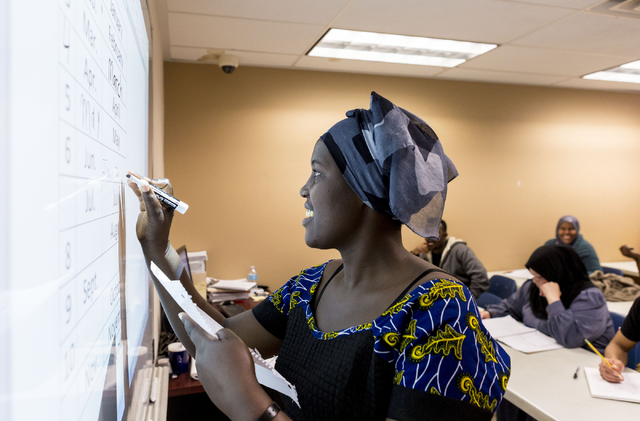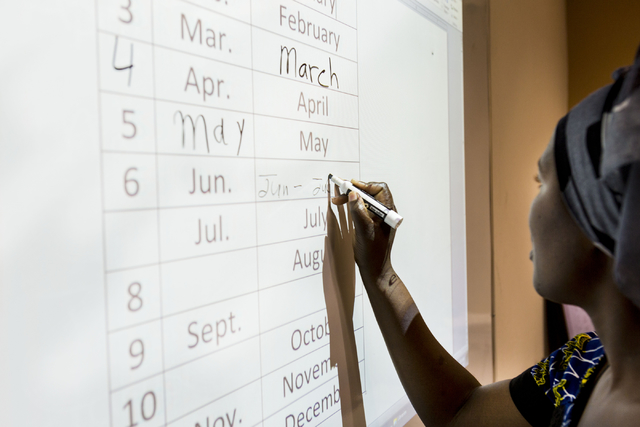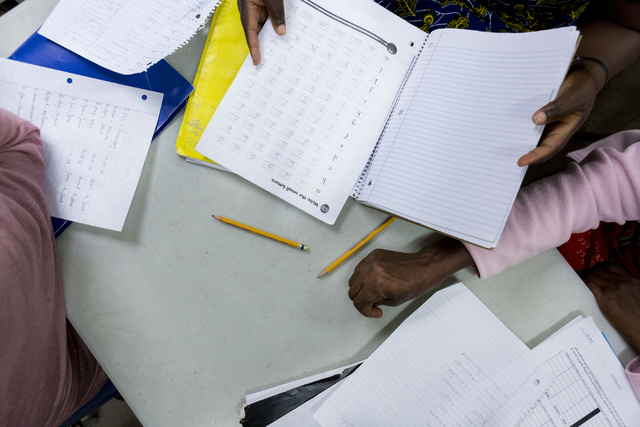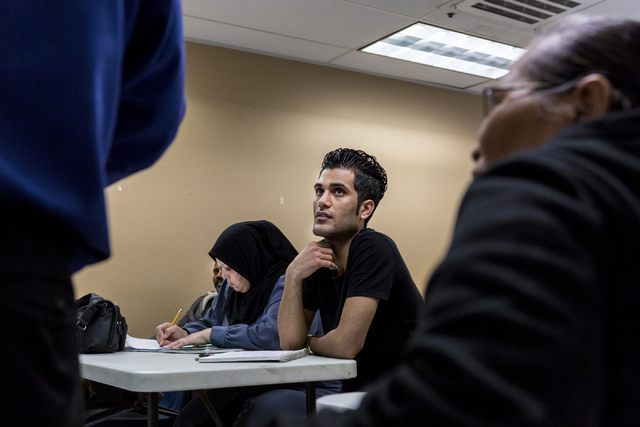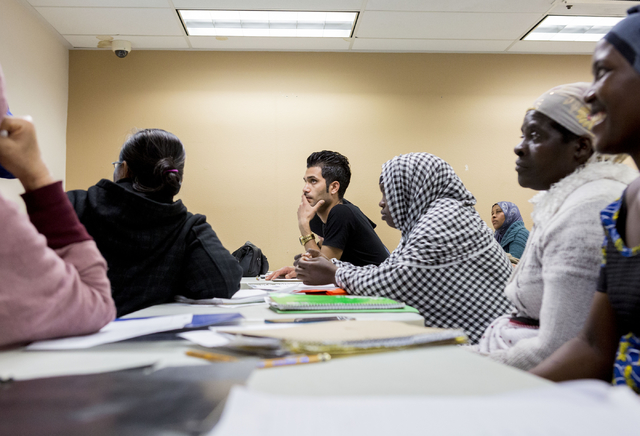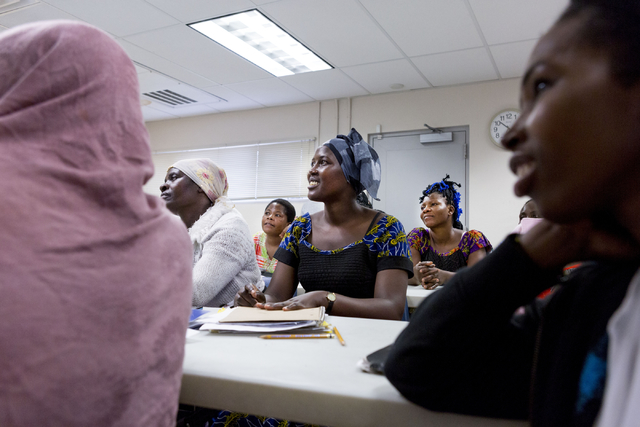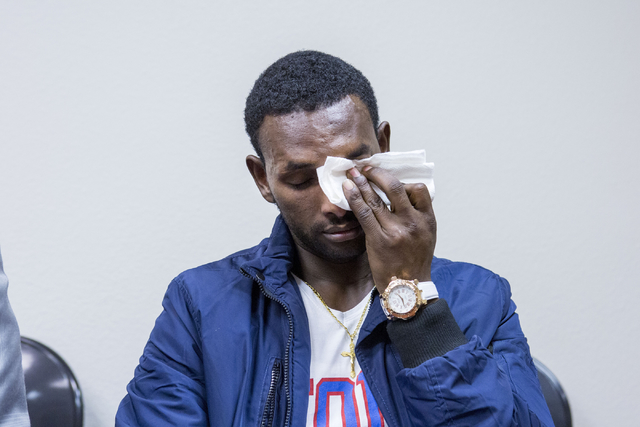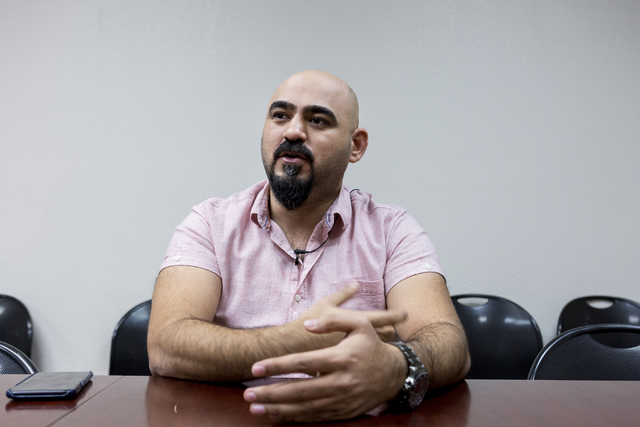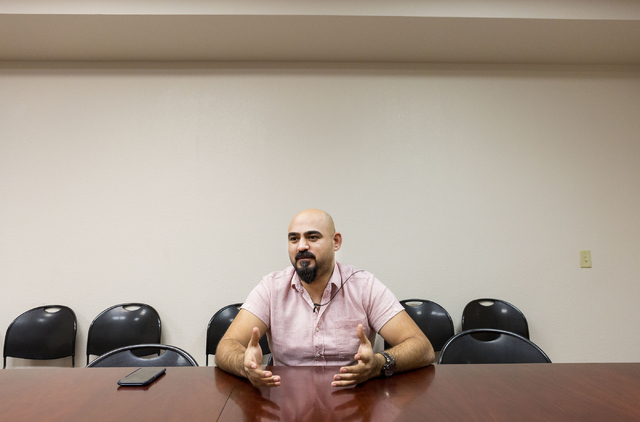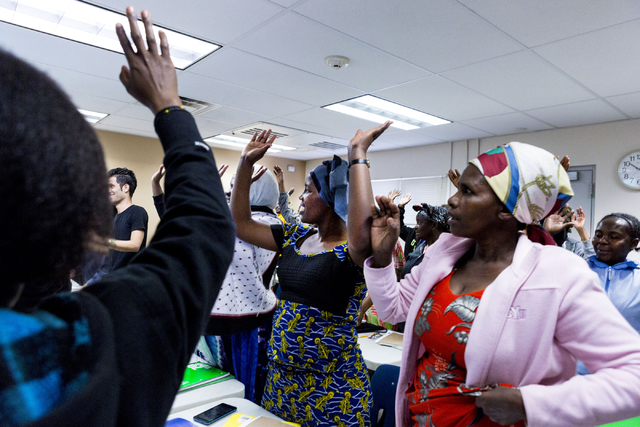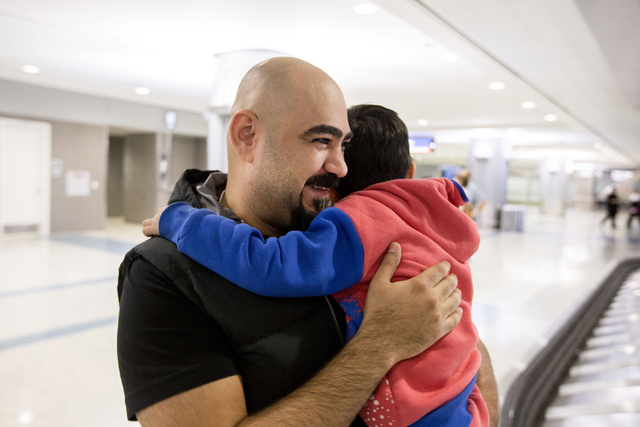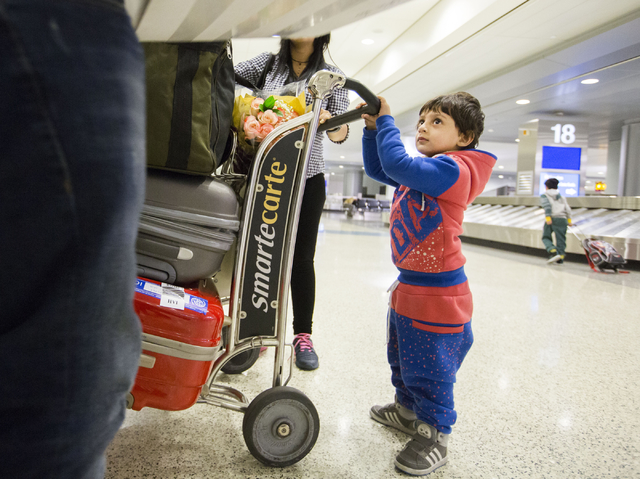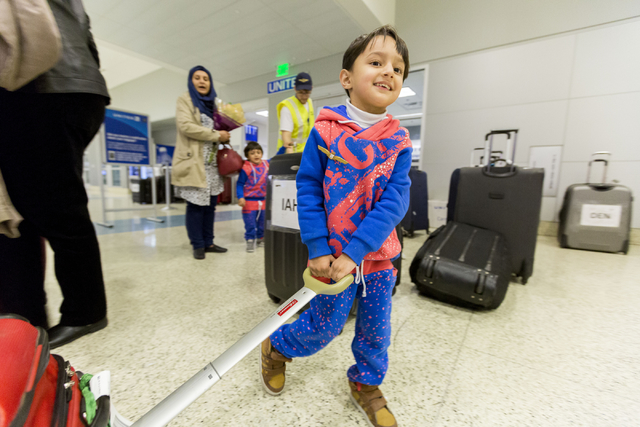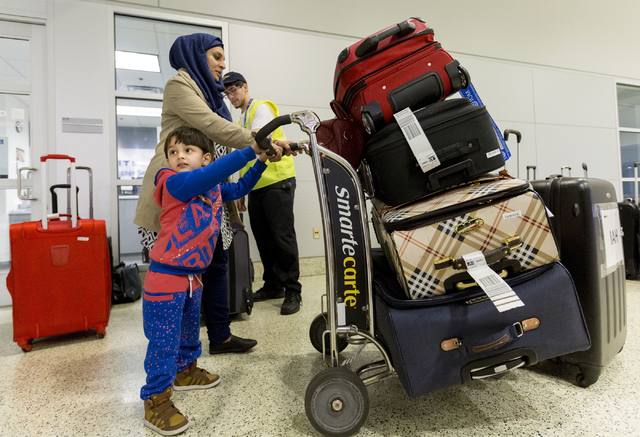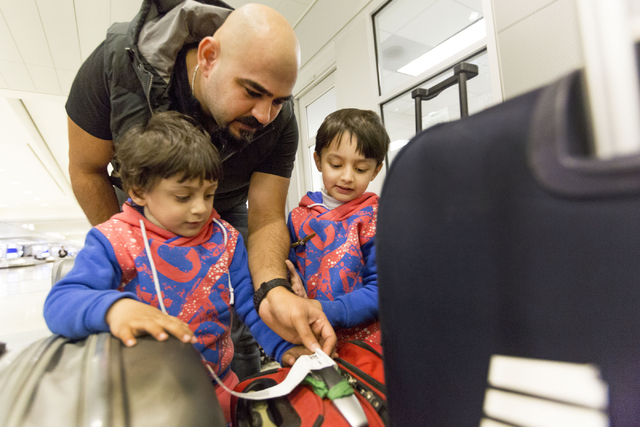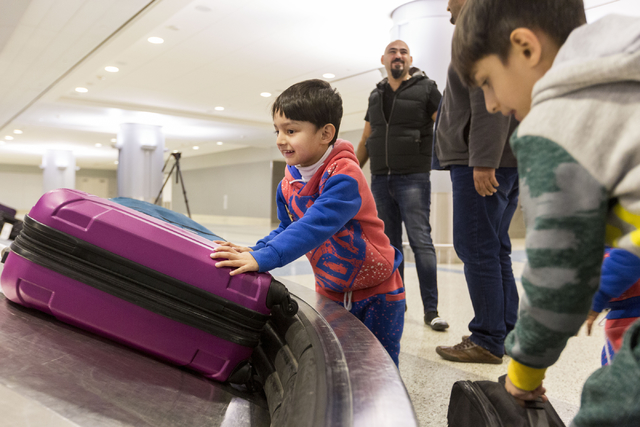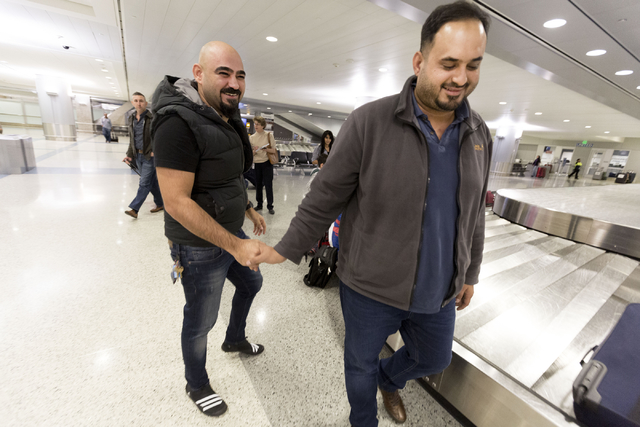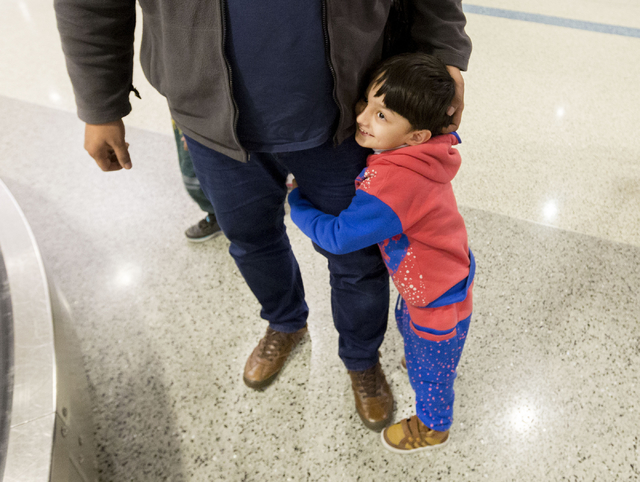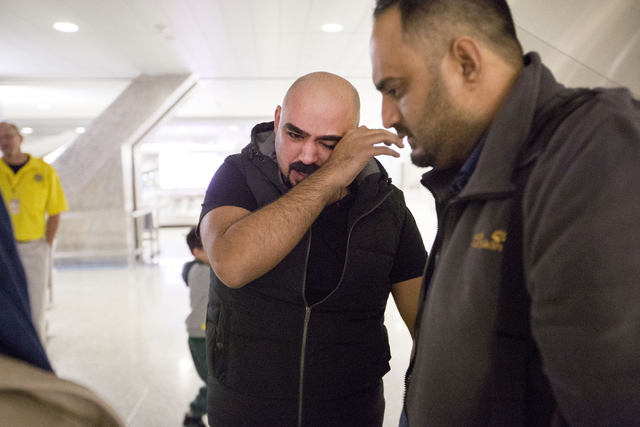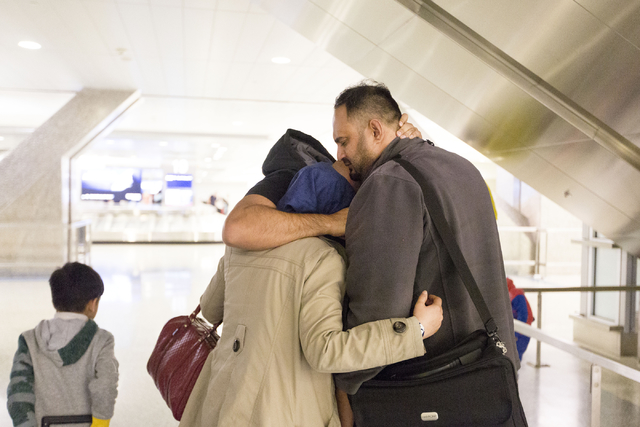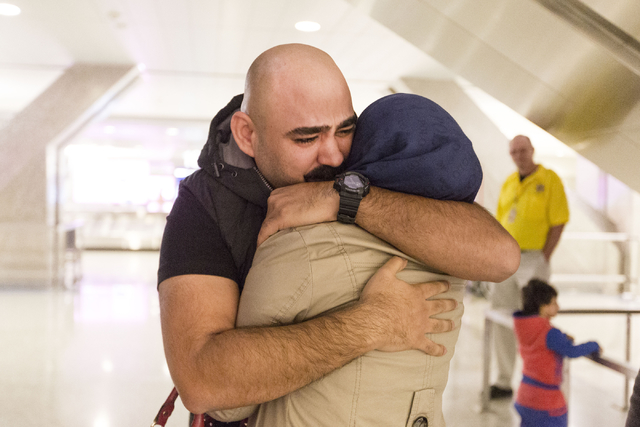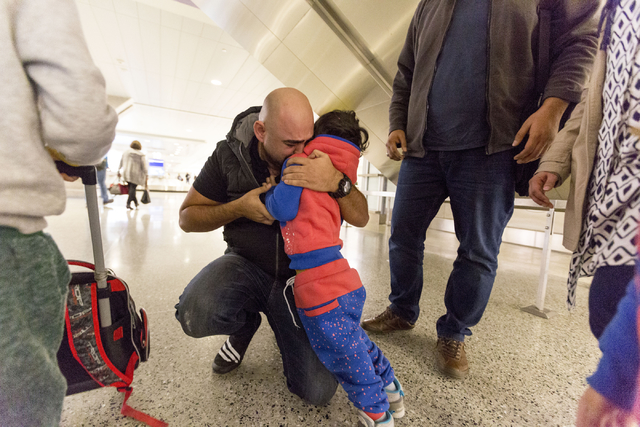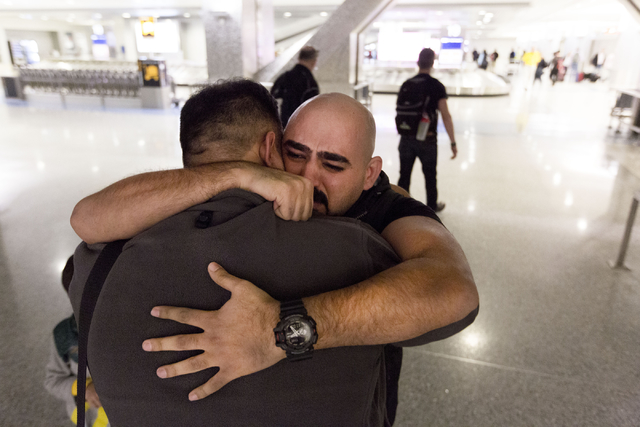Refugees’ emotional roller-coaster: Brothers from Iraq reunited in Las Vegas
Dhulfiqar Naqvi endured death threats and lived in fear for years before fleeing his native Iraq to build a new life as a refugee in the United States. But the hopeful beginning he carved out in Las Vegas was suddenly hollowed out two weeks ago, when he learned that his brother, Saif, and his family would not be able to join him as planned because of President Donald Trump’s travel ban.
Naqvi, who already had found and furnished an apartment for his brother’s family just a few buildings away from his own, was full of plans for Saif’s early days in his new country and eager to hear how his parents were faring in their native land.
But those expectations were flattened when he learned that his brother’s flight had been canceled by Trump’s since-suspended executive order barring refugees from seven mostly Muslim countries, including Iraq.
“We respect the rules, but now we are afraid the rules (are) not respecting us,” Dhulfiquar said of his thoughts at that moment.
Dhulfiqar’s emotional roller-coaster reversed direction again on Friday. He was overcome with sheer joy as he saw his brother, his sister-in-law and three young nephews walking toward him through the domestic baggage claim section of McCarran International Airport.
‘I’M IN HEAVEN RIGHT NOW’
The brothers, who had not seen each other for nearly a year, wept and held onto each other as if, by the sheer force of their embrace, they could prevent anything from coming between them again.
“I’m in heaven right now, believe me,” Dhulfiqar, 33, said. “I want to go home and talk. … My father and mother, I haven’t heard about them for a long time.”
Saif, 35, spoke of renewal.
“Now I can start my life again here with my kids, my wife,” he said. “No one now can threaten me. It’s like a weight has been lifted from my heart.”
The Naqvis were among 13 refugees bound for Las Vegas whose lives were upended by Trump’s order on Jan. 27, which banned immigrants and refugees from Iraq, Iran, Somalia, Sudan, Yemen, Syria and Libya. In the ensuing days, after chaos at airports around the world and the ban was blocked in federal courts, all but one of those 13 canceled flights was rescheduled.
Deacon Tom Roberts, president and CEO of Catholic Charities of Southern Nevada, the state’s official refugee resettlement office, said the ban sent shock waves through his staff and the local refugee community.
“Can you imagine,” he said, “after being in a refugee camp for a number of years and finally getting the chance to come and then literally at the 11th and half hour you’re told you’re not going?” he asked.
Like other U.S. states, Nevada has a sizable refugee population, most of whom “left their home countries because of terrorism or threats of death, fleeing for their lives,” according to Roberts. Nearly 900 have resettled in the Silver State so far in fiscal 2017, and close to 12,000 refugees have relocated here since 2011.
The vast majority of those newcomers came from Cuba. But they hail from all parts of the globe, including 1,481 from five of the seven Muslim-majority countries in the travel ban.
Catholic Charities finds housing for the refugees, provides them with English as a second language instruction and helps them find work, in addition to providing them with guidance during their first months and years in the United States.
“Some are coming from very faraway places with a great deal of duress and trauma in their lives,” Roberts said. “We are the ones who welcome the stranger among us so they can feel comfortable in their new home.
The Naqvi brothers are in some ways typical of those they help.
Both worked for a U.S. military contractor in Iraq, with Dhulfiqar helping arrange entry and exit visas and Saif specializing in information technology.
THREATS AND THREE BULLETS
Their work and that of their father, an engineer who worked for an Italian company also contracted by the U.S. government, put the brothers and their families in the crosshairs of militant groups opposed to the U.S. presence in Iraq.
Death threats were a daily concern. At one point, Naqvi said, his family’s home was broken into and threatening statements were written on the walls; at another, they received an envelope containing three bullets and a note telling the brothers and their father to leave the country.
Until they could qualify for refugee status, the Naqvis stayed on the move. They changed homes at least five times and sometimes slept in their offices. They drove as many as 15 different cars, repainting them often and changing their license plates and altered their driving routes.
Dhulfiqar, who has a wife and three children, was first to qualify, arriving in the U.S. in April and spending six months in Chicago before moving to Las Vegas in search of warmer climes.
Now, living in a two-bedroom apartment just a few miles from the Strip, he said he’s thrilled that he can leave his home in peace, knowing that he can go to the store, do his work, run errands, and see the sites without fear of reprisals.
“We left everything,” he said and are starting anew in the United States with “a new life, new friends … It’s difficult, very difficult, but it’s safe for the kids and for my wife.”
Bill Olds, a retired U.S. Army colonel and Vietnam veteran from Las Vegas, has sponsored eight foreign nationals who relocated to the U.S., including two who were sponsored by Catholic Charities. He said Trump’s order had an impact that extended far beyond those who were about to board flights.
He said six of those families contacted him when the order was issued seeking assurances that the Trump administration doesn’t view them as ISIS sympathizers.
“They wanted to know if they could be deported or prevented from visiting their families in Iraq and Afghanistan,” he said.
Olds, 78, who voted for Trump, said he agrees with the goal of the president’s order, though he thought its implementation was unfair to those who risked their lives to aid the U.S. military, especially interpreters.
“His intentions to ban ISIS, prevent them from entering the U.S. and fulfill his pre-election promises are excellent,” he said. “However the manner in which he announced and executed this executive order is the pits.”
Review-Journal staff writer Keith Rogers contributed to this report. Contact Lucy Hood at lhood@reviewjournal.com or 702 387-2904. Follow @lucyahood on Twitter.



